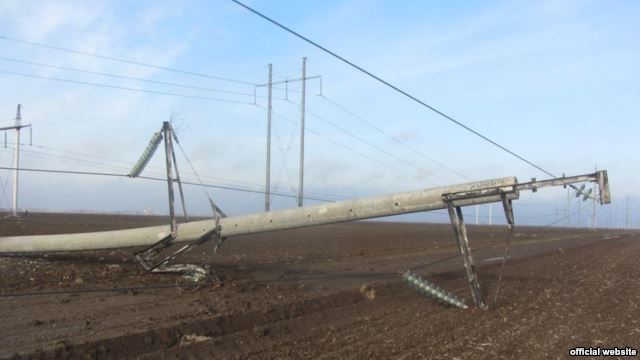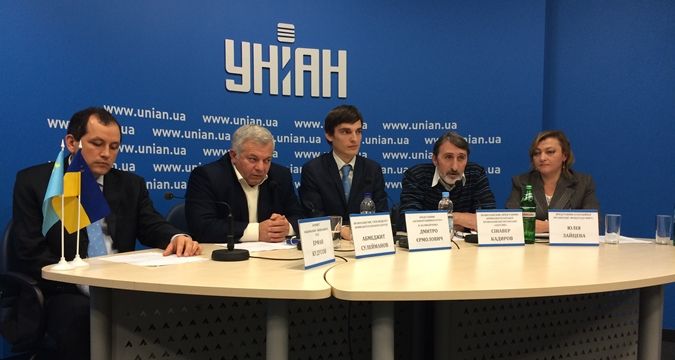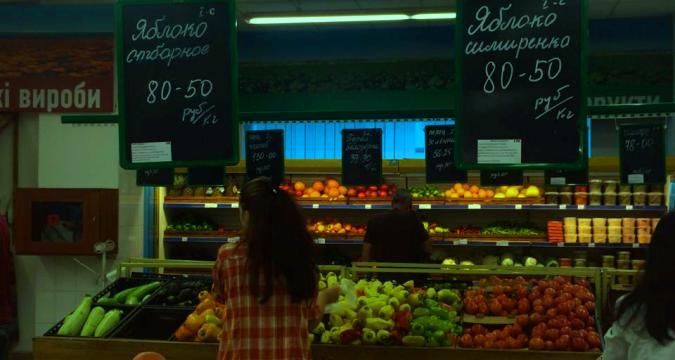The blowing up of power lines in order to intensify the energy blockade of Crimea not only “very sharply raises the stakes” of the action as a whole but raises five “questions which it is usually not considered polite to ask,” Pavel Kazarin of ICTV and Krym.Realii says.

And even if one believes as Crimean Tatar leader Mustafa Dzhemilyev does that it is long past time to break all ties between Ukraine and Russia, the country that seized Crimea illegally and is conducting a war against Ukraine as a whole, Kazarin’s questions deserve to be taken seriously.
His first question is the most brutal: Where is the Ukrainian government? “From the very first day of the goods blockade, official Kyiv has taken a wait and see position.” It hasn’t interfered but it hasn’t openly supported it either. But it needs to take a position: either the blockade is illegal and should be ended, or it is a matter of state policy and must continue.
The destruction of the electric power lines “raises the stakes” as far as this issue is concerned, Kazarin says. “Anti-tank mines” which were used to blow up the electric lines don’t correspond to “’an action of civic protest.’ And therefore the question arises:” What position is the Ukrainian government going to take: implicit support for the blockade or open opposition?
Kazarin’s second question follows: “On behalf of whom is [the blockade] being carried out?” Some activists say it is intended to hit the Russian force and occupation structures in Crimea and that the pro-Ukrainian population will not only understand but be able to survive the cutoff in power.
“In the final analysis,” he continues, “this position is as follows: we are doing ill to some in order it will be better for others. And if this position is presented as an act of concern about the Crimean Tatars, then there arise questions concerning good sense and logic” given that the occupiers are persecuting people for their convictions rather than their ethnic memberships.
Those Crimean Tatars who have been willing to collaborate with the occupation are supported, Kazarin notes, while those Ukrainians and Russians who have not have been persecuted. Does the blockade undermine this or reinforce it? That is something those behind the blockade need to think about.
The third question is “What is the goal of the energy blockade?” Supporters give a variety of answers to that, the commentator says. Some say that it will force the Kremlin to spend more to support Crimea or to negotiate about it. Others simply assert that it is “unethical” to have anything to do with an invader or occupier.
But none of them, Kazarin insists, give a clear answer to the question: “How will the energy blockade affect the fate of political prisoners?” It simply is too blunt an instrument for that. And he says, “it sometimes seems” that some support the blockade for emotional reasons and have chosen electricity because it is the last thing “Kyiv supplies Crimea.”
If so, then “the energy blockade was chosen not because it is the most effective instrument… [but] only because it is the only one remaining” – and that all explanations offered are only an effort to give meaning to it after the fact.
The fourth question is critical: “How will [people and powers] in Crimea react?” Backers of the blockade say pro-Ukrainian Crimeans will understand and support it, but they forget two things: On the one hand, the authorities will certainly help the army before they help the population. And on the other, people have real immediate needs that this will threaten.
And finally, the fifth question, “Is it worth pretending?” Some backers implicitly or even explicitly suggest that they want to force Moscow to do something and that “the opinions of the Crimeans themselves do not play any role because the Crimeans are not the ones taking decisions.”
At the very least, that suggests some of those backing the blockade are behaving in a less than fully ethical position; at the worst, it means that this action could backfire and end by working for Moscow rather than against it. But however that may be, Kazarin suggests, Ukrainians and the Ukrainian state should be asking themselves these tough questions.








